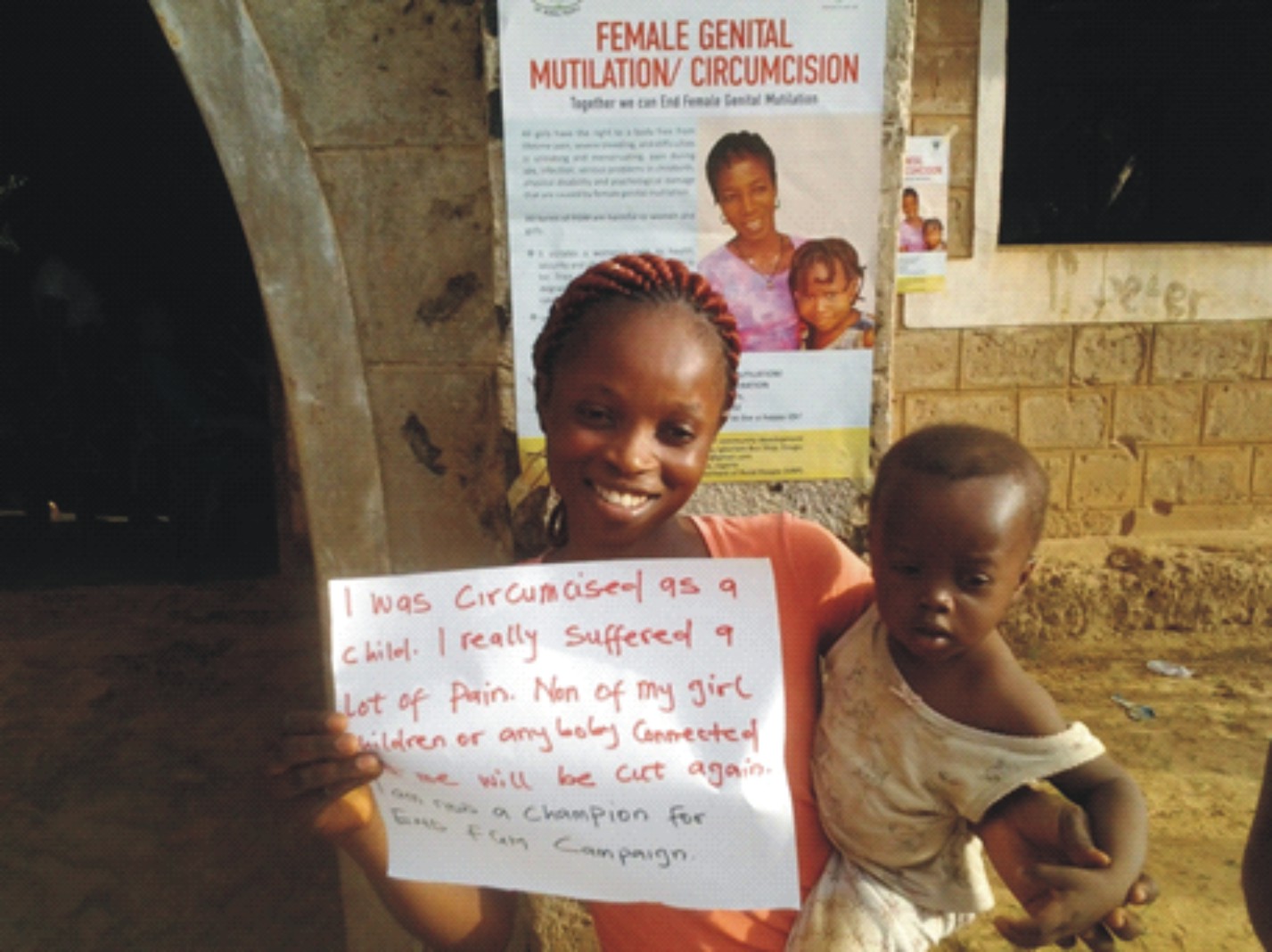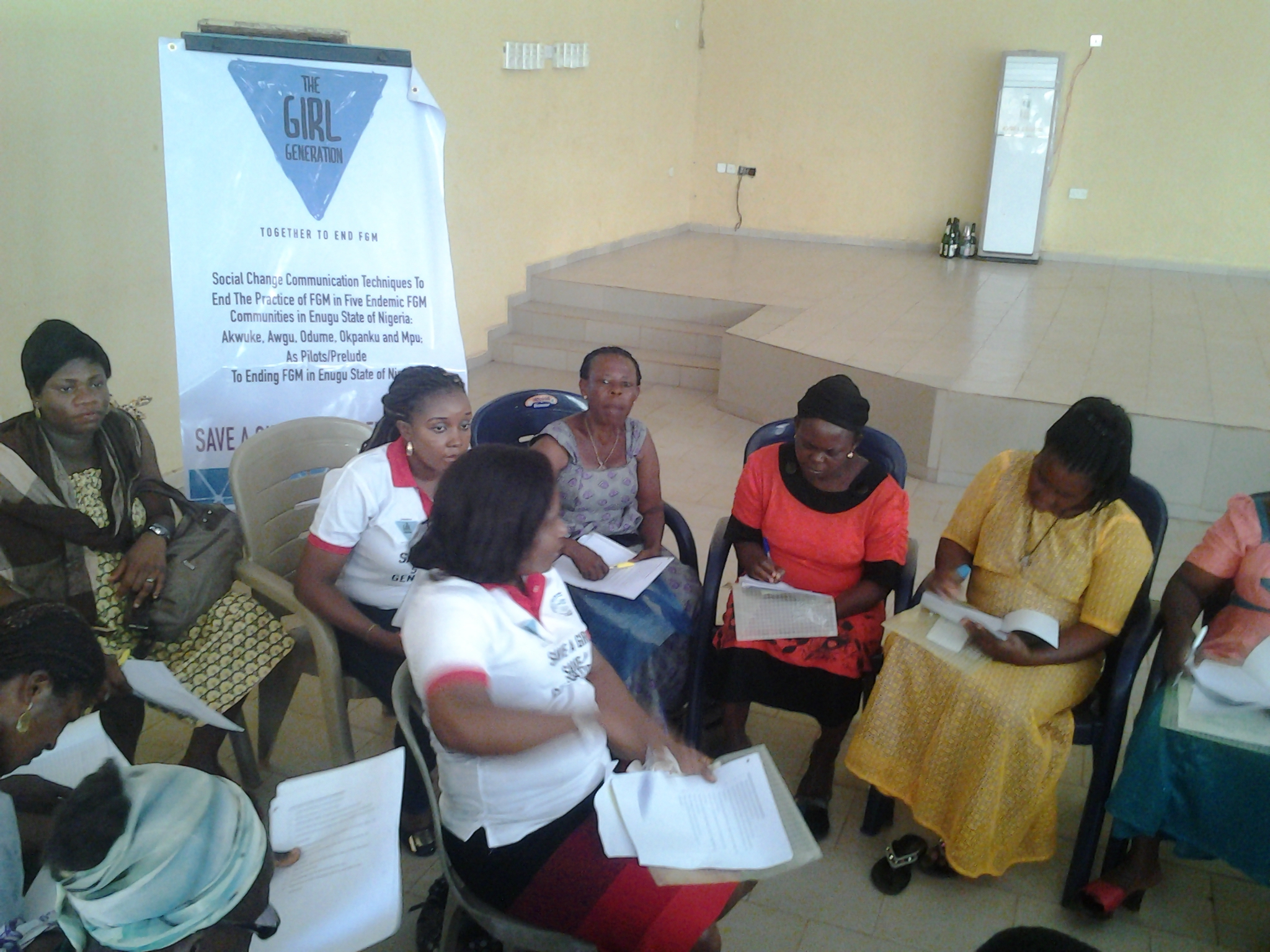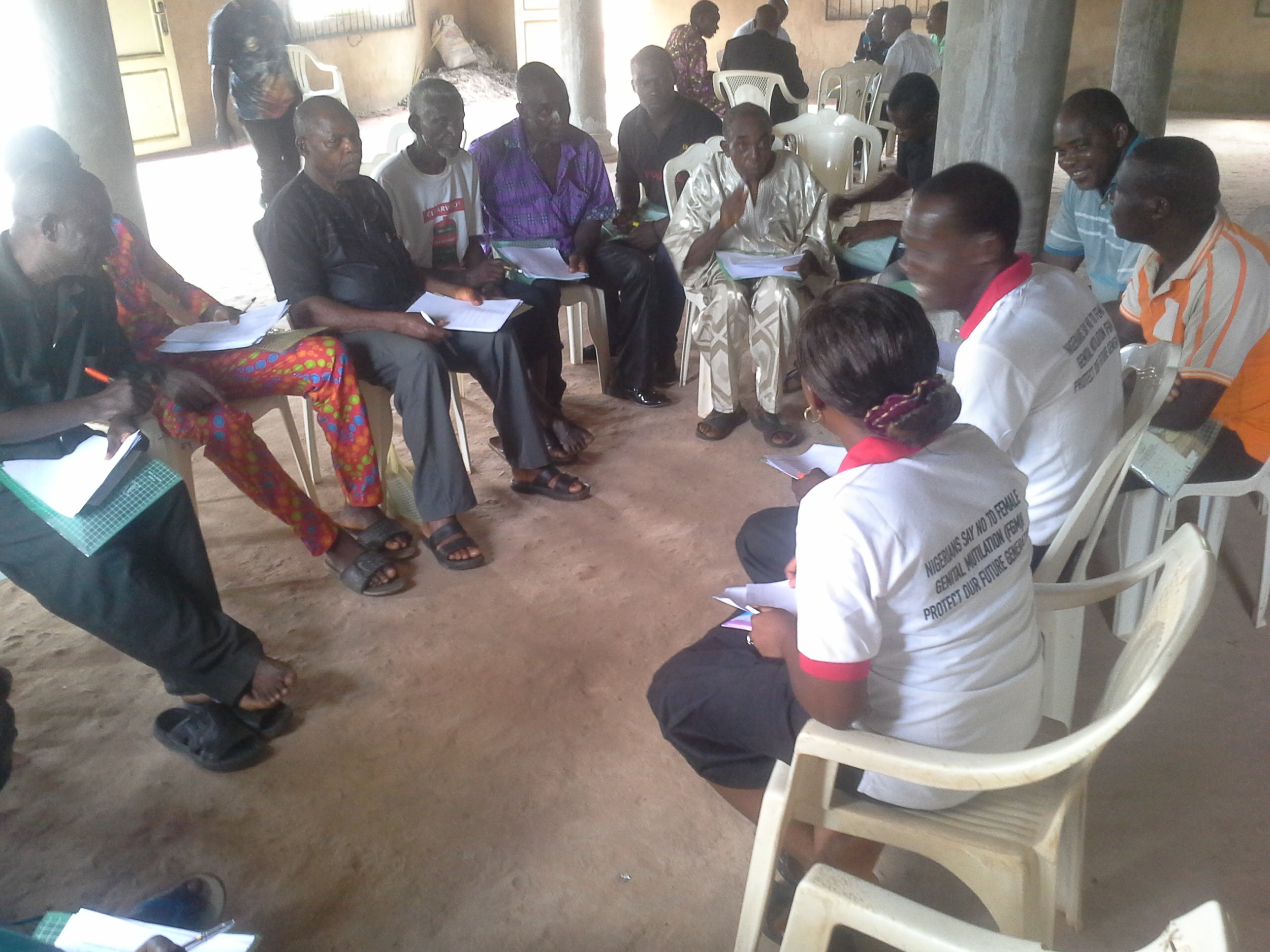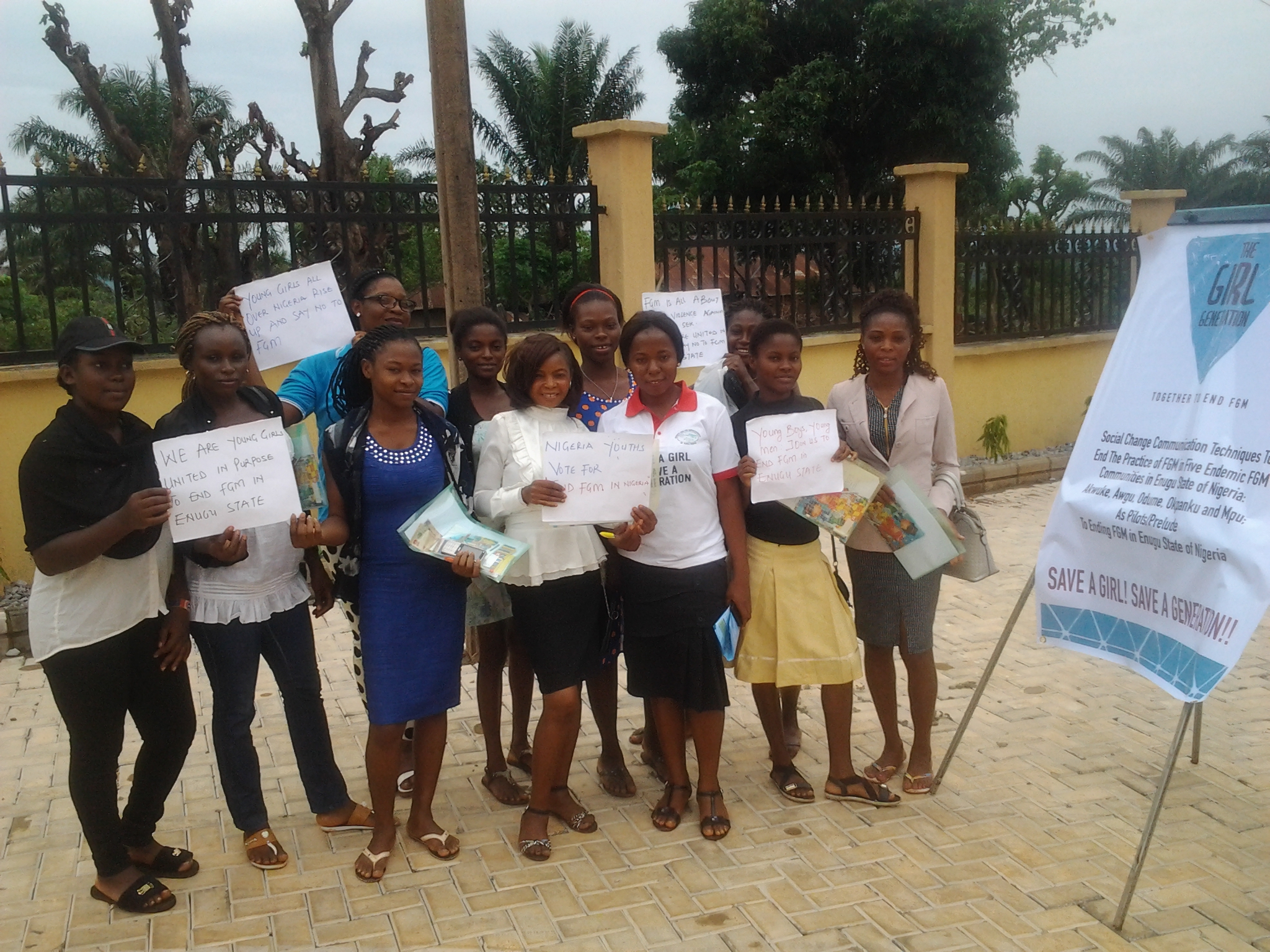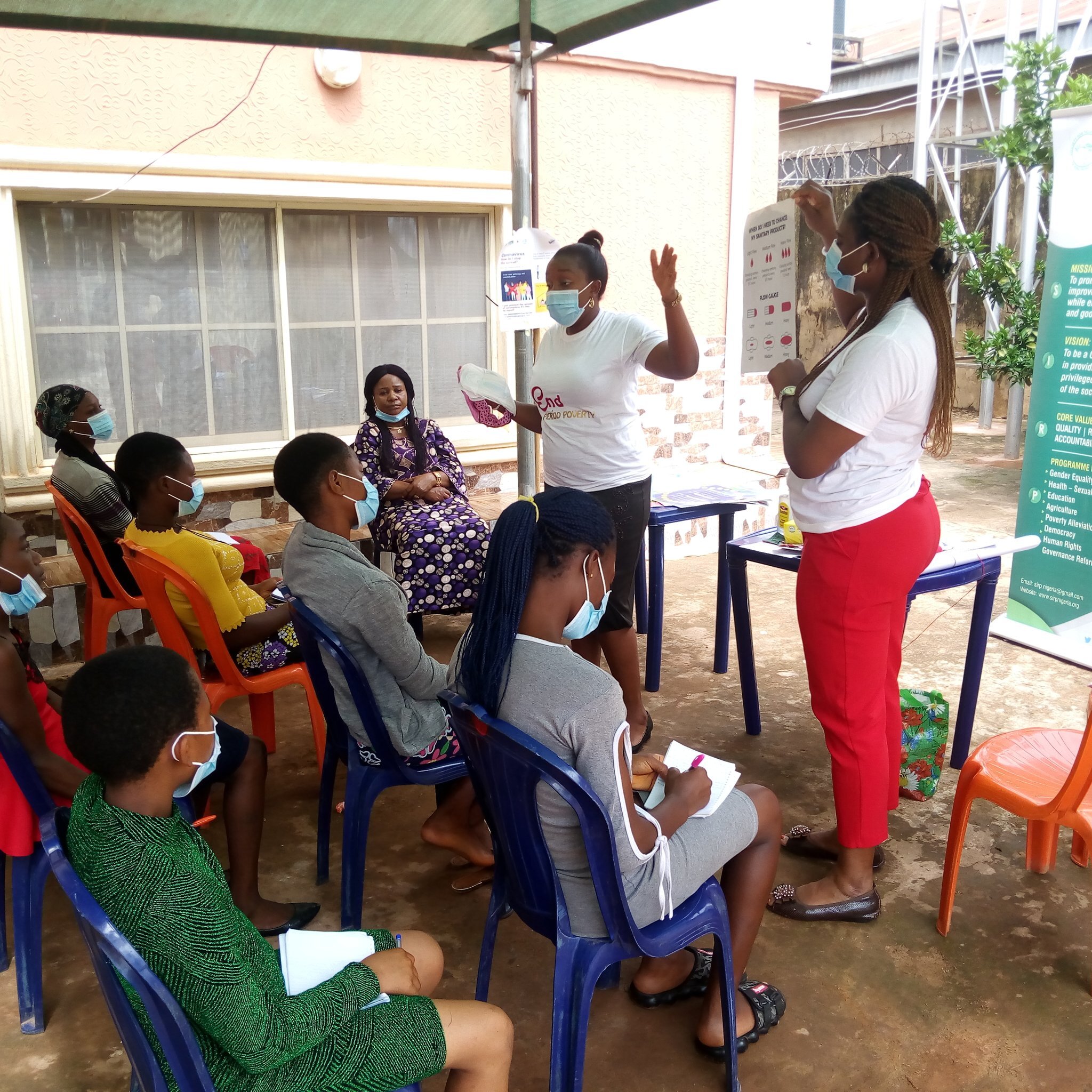End Female Genital Mutilation and Keep Girls in School
Location: Akwuke, Enugu State, Nigeria.
The overall aim of this project is to reduce the female genital mutilation (FGM) prevalence rate in Akwuke community of Enugu State from the current rate which is roughly 85% to 45% by the end of this project which will have a direct effect of keeping girls in school.
Akwuke is a rural community in Enugu State, Nigeria. Akwuke is sparsely populated because many of the young people are leaving to try to find work in the urban areas. Akwuke currently has an estimated population of 8,700.
Akwuke like most rural communities in Nigeria lacks the basic amenities of good roads, a stable power supply and a portable water supply. Modern technology is lacking and the rate of change slow.
A major problem facing Akwuke community is FGM. In Akwuke, most girls and women are mutilated before the age of 5, often during their naming ceremony which serves as a traditional rite of passage. In this regard FGM is seen as part of the naming ceremony and this ceremony is conducted between the 7th and the 12th day after the birth of the girl child.
The rate of FGM practice is quite high in Akwuke, as opposed to 50-60% FGM practice in other parts of Enugu State. This was revealed after research conducted by the Enugu State Ministry of Gender Affairs. In 2016, a random FGM prevalence assessment rate was conducted in the 174 communities in Enugu State. Akwuke community scored an average of 81 – 85% in the prevalence rate of FGM practice in Enugu State.
Tradition is a highly respected in Akwuke and community members tend to be impervious to change particularly against FGM practice; hence the choice of social change communication strategy to end FGM in Akwuke.
The rate of child marriage is quite high in Akwuke because FGM serves as a precursor to the girl child entering into early and forced marriage. The rate of school absence and drop out amongst girls is high in Akwuke community which is due to the physical and psychological health impacts of FGM.
Under the patriarchal system in Akwuke community, women and girls are seen as inferior to the men and have little or no opportunity for advancement. This inferiority is exemplified in so many ways beginning in early childhood. Women and girls are considered less important with few rights particularly in the areas of education and land inheritance.
Through research with local community members in Akwuke, it was revealed that the greatest need of this community was to address the practice of FGM. A direct quote from one member of the 200 girls and women from the community stated, “Please help us tell our parents that they should stop forcing us to undergo FGM…FGM affects our studies. Sometimes I can’t go to school because of the enormous pain I feel.”
By creating dialogue with traditional and religious leaders from Akwuke, who are commonly referred to as community gatekeepers and who wield a great deal of influence in the community, this project will aim to address the problem at its root with a change in mindset.
This will be an inclusive approach with conversations addressed at family heads, elders, opinion leaders, teachers, and young people who will be part of the social change intervention needed to ensure a change of attitude toward ending FGM by the entire community.

